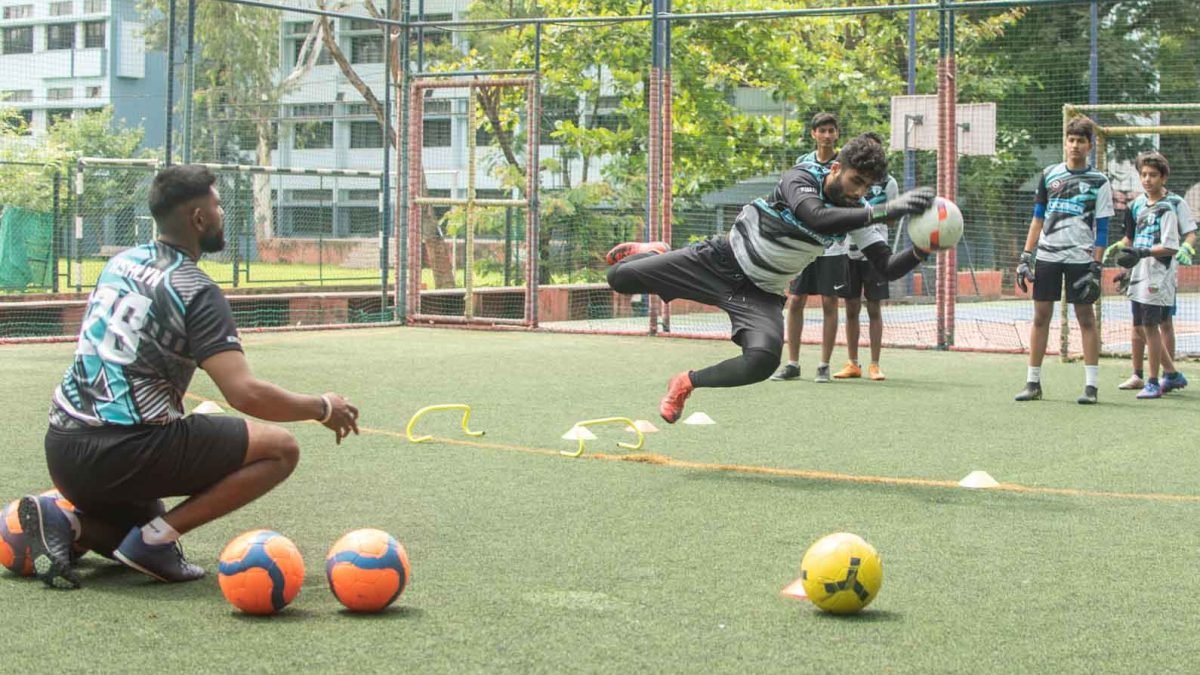The realm of Indian football is a testament to the country’s growing prowess and passion for the sport. Amidst the rise of football clubs and the burgeoning talent pool, a few individuals have stood out for their exceptional coaching acumen, shaping the course of football in India through their strategic insights, mentorship, and leadership. This blog post celebrates the top Indian football coaches of all time, individuals who have not only left an indelible mark on the Indian football scene but have also garnered respect on the international stage.
Read Also: Early Access Alert: Call of Duty: Modern Warfare 3 PC Open Beta, Powered by DLSS & Reflex
Syed Abdul Rahim – The Architect of Modern Indian Football
Syed Abdul Rahim, revered as the “Father of Indian Football,” was a visionary whose coaching techniques were ahead of his time. His tenure as the head coach of the Indian national team from 1950 until his untimely death in 1963 is often referred to as the golden era of Indian football. Rahim’s approach to the game was revolutionary at the time, focusing on technical skills, ball control, and quick passes, which was a stark contrast to the physical and long-ball tactics prevalent in Indian football.
Under his stewardship, India not only excelled on the Asian stage but also made a mark internationally by finishing fourth at the 1956 Olympics, an achievement that remains unmatched in football career in India. Rahim’s legacy is not just in the trophies and accolades but in the philosophy of play he instilled, which continues to influence football coaching in India.
Stephen Constantine – A Modern-Day Pioneer
Stephen Constantine’s impact on Indian football is immeasurable. His two spells as the head coach of the national team saw India make significant strides on the international stage. Constantine’s first tenure between 2002 and 2005 laid the groundwork for a more professional approach to the game in India. Returning in 2015, he took over a team languishing at its lowest FIFA ranking (173 in March 2015) and propelled it to the top 100, highlighting his ability to inspire and achieve results.
Constantine’s tenure was marked by an inclusive approach to talent scouting, giving opportunities to players from across the country and various leagues, thus democratizing the selection process. His focus on fitness, discipline, and a proactive style of play helped the team achieve notable successes, including qualification for the 2019 AFC Asian Cup after an eight-year hiatus. Beyond the pitch, Constantine’s emphasis on developing a professional ethos around the team, from training methods to nutritional plans, has left a lasting impact on how the national team prepares and competes.
Sukhwinder Singh – The Silent Strategist
Sukhwinder Singh, often referred to as the silent strategist, has been instrumental in nurturing young talents and leading them to victory on international platforms. His most notable achievement includes guiding the Indian U-23 team to victory in the LG Cup in Vietnam in 2002, a feat that ended India’s 40-year drought of international tournament wins.
Bob Houghton – The English Influence
Bob Houghton’s arrival in Indian football in 2006 marked the beginning of a new chapter. His tenure was characterized by an emphasis on professionalizing the setup for a football career in India, introducing modern training methodologies, and improving the overall infrastructure. Houghton’s coaching philosophy was based on rigorous physical conditioning, tactical discipline, and playing an attractive brand of football.
Under his guidance, India won the Nehru Cup in 2007 and 2009 and the AFC Challenge Cup in 2008, which secured their spot in the 2011 AFC Asian Cup for the first time in 27 years. Houghton’s legacy extends beyond these achievements; he was instrumental in advocating for the improvement of football facilities across the country and played a key role in setting up the AIFF’s Elite Academy. His insistence on better playing conditions and support structures has had a profound and lasting effect on the landscape of Indian football.
Igor Stimac – The Current Custodian
The Croatian, Igor Stimac, took the reins of the Indian national team in 2019, and his tenure has been marked by a focus on introducing a modern, attacking style of play. Stimac’s approach has been to blend young talents with experienced players, aiming to elevate India’s standing on the international stage further.
Derrick Pereira – The Developer of Youth Talent
Derrick Pereira is a name synonymous with dedication, perseverance, and an unwavering commitment to nurturing young talent in Indian football. His coaching career, marked by stints across various clubs in the Indian Super League (ISL) and I-League, showcases a profound understanding of the game and a visionary approach to player development.
Pereira’s journey in coaching began after an illustrious playing career, transitioning seamlessly into a role that would later define him as one of the most respected figures in Indian football coaching circles. His philosophy revolves around a core belief in the potential of young players, focusing on technical skills, tactical understanding, and physical fitness tailored to each player’s unique attributes and strengths.
Albert Roca – The Spanish Maestro
Albert Roca, with his rich pedigree of European football, brought a new dimension to Indian football during his time as the head coach of Bengaluru FC. His tactical acumen and emphasis on a possession-based style of play led the club to significant successes, including a historic run to the final of the AFC Cup in 2016.





